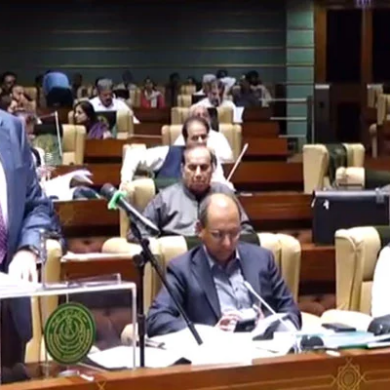After a 20-year long invasion, all American forces evacuated from Afghanistan on the 31st of August. The British empire, the Soviet Union, and now, America have all been driven out of this nation despite them being the major superpowers of the world.
The historic withdrawal of the American nationals led to country-wide celebrations. Hundreds and thousands of Taliban supporters flooded the streets, prostrating in prayer to display their gratitude and chanting, “Allah is the greatest”.
Kandahar, the spiritual birthplace of the Islamist movement, was filled with people waving flags and a hubbub of car horns. Kandahar was where the group had been founded in 1996 and from where it rose to the power it is standing at today. Here, the Taliban’s supreme leader, Hibatullah Akhunzada, resides as well.
Celebrations were carried out in Shaheedan Square as well, which was jam-packed with boys and men in traditional clothing, celebrating the independence of their nation while chanting “Allah Hu Akbar”. A video was posted on social media, displaying a boy named Abdullah stating that the Islamic Emirate of Afghanistan was now independent as the flag of the Prophet Muhammad (PBUH) had been raised in the nation, the way it would be all across the world one day.
People were pouring in from villages and other distant areas after hearing about the withdrawal of the US army in order to celebrate. As they drove around the city, they were yelling out, “We have defeated the superpower! Afghanistan is the graveyard of superpowers!”
A Taliban commando, Maulvi Zakerullah, informed a reporter during the celebrations that any weaponry or ammunition left by the “infidels” would be used against them if they ever returned to destroy the country once again.
The end of American control had given the people of Afghanistan a sense of freedom and a reason to rejoice. While the citizens of the country had been fearing the rule of the Taliban, especially the restrictions they could place on women, there seems to be little to no injustice in such matters and no extremist rules seem to have been implemented as yet.
The Taliban spokesperson, Suleman Shaheen, stated that a general amnesty had been given to all those within the state and their focus was to remain on building the future. While female workers are being encouraged to resume their government jobs, professors of educational institutions are being instructed to get back on track and reopen schools as per their regular schedule.
The War on Terror began in Afghanistan post the tragedy of 9/11 when George W. Bush initiated the first attack in 2001. The war persisted for years, consisted of thousands of deaths of both US and Afghan nationals and an overall cost of more than $2 trillion. The end of the war began when Donald J. Trump became the president of America in 2016 and vowed to put an end to these wars. In February 2020, Trump signed an agreement with the Taliban to withdraw the American forces by May 2021.
Then, Joe Biden came into office in January and went along with the decision to extract the US army, but he extended it from May to August 31st in order to ensure a systematic and peaceful withdrawal. As the date neared, the Taliban began taking over Afghanistan and amidst this, rumors of the Americans having to hastily evacuate, as they had from Vietnam in 1975, began to spread.
Biden publically stated that “There’s going to be no circumstance where you see people being lifted off the roof of an embassy of the US from Afghanistan.”
Five weeks after this statement by Biden, the Taliban took over Kabul and a group of Chinook helicopters arrived at the US embassy in Kabul to take away all diplomats. The American government faced immense backlash as people all over the world began to criticize their decision of extracting their forces right when the Taliban took over the nation.
20 years down the lane, it seemed as if the Americans had lost and the Taliban had won the ‘Forever War’.



